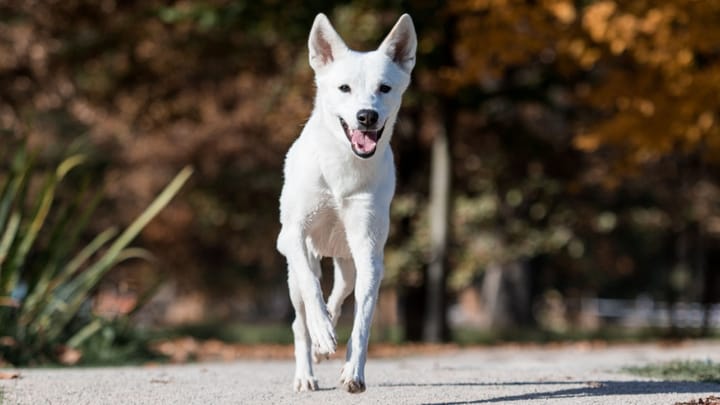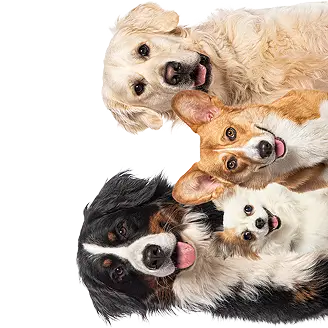Canaan Dog
Other names : Palestinian Pariah Dog, Bedouin Sheepdog

The Canaan was bred from wild pariah dogs and has been in existence for thousands of years. They were semi-domesticated by the ancient Israelites, who used the breed as watchdogs and herd dogs. In the 1930s, Dr Rudolphina Menzel set up a breeding programme which tamed this semi-wild dog. After that, they were used as police and military dogs. Some dog lovers adopted the Canaan as a domestic pet, although this was rare. Experts believe the Canaan’s domestic population is around 2,000-3,000, with the majority living in Europe and North America.
|
Life expectancy |
The Canaan Dog has a life expectancy of between 12 and 14 years |
|
Temperament |
|
|
Size |
Medium
|
|
Adult size |
Female
Between 20 and 24 in
Male
Between 20 and 24 in
|
|
Adult weight |
Female
Between 40 and 55 lb
Male
Between 40 and 55 lb
|
|
Coat colour
Black. Cream. All shades of brown and red, usually with small white markings, or all white with colour patches. White or black masks permitted. |
Black White Brown Red Sand |
|
Type of coat
Short to medium. Rough, straight, thick. |
Short Hard |
|
Eye colour
Dark brown. Black. Hazel. |
Brown
|
|
Purchase price |
The Canaan Dog costs between £700 and £1200 |
Waiting lists for Canaan puppies can be very long, as they are a rare breed.
Same-sex aggression can be a real problem. They must be well socialised from an early age. They need a confident handler.
More details about the Canaan Dog
Canaan Dog: Origins and history
The Canaan is a very ancient breed. Their remains have been uncovered by archeologists in and around Israel, and many believe that the Canaan was revered as a sacred animal. This was common for many desert dwelling tribes, as such animals helped them hunt and herd livestock that sustained the wider community. The first Western breeding programmes didn’t start until 1934 and by 1953 the Canaan was being used as a guide dog, a police dog, and a companion dog. Although they can make excellent pets, they’re still relatively unknown outside of the dog breeding community.
Physical characteristics of the Canaan Dog
Medium size. Strong and square body. Thick coat with a large plumed tail. Short, pricked ears and long muzzle. Bears a close resemblance to wild dogs like the Dingo and Pariah dog.
FCI classification of the Canaan Dog
-
Group 5 - Spitz and primitive types
-
Section 6 : Primitive type
Canaan Dog: Characteristics
Canaan Dog: Behaviour
Training a Canaan Dog
In the right hands, these dogs are easy to train. The Canaan is an intelligent animal that thrives on having a firm but fair handler.
Canaan Dog: Lifestyle
Breed compatibility Canaan Dog
Canaan Dog: Purchase price
The initial cost of a Canaan Dog puppy is between £700 to £1,200. The average cost to keep one of these dogs (including vet bills, insurance, and food) is between £50 to £100 a month.
Canaan Dog: Shedding
Average
Profuse shedders during spring and autumn. Moderate the rest of the year.
Canaan Dog: Grooming
Minimal grooming requirements. A weekly brush is all they really need.
Canaan Dog: Health
A very healthy breed with a life expectancy of 12 to 14 years.
A muscular, well-built dog. Strong, robust, and very tough.
These dogs were bred in the desert; they have no problems coping in warmer temperatures.
Canaans have a dense coat that keeps them warm during colder times of the year. However, they will need a dog coat if temperatures fall close to freezing point.
No issues with unwanted weight gain or obesity.





